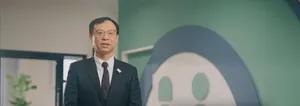Supporting fact-checking communities with Nobel laureate Maria Ressa

Editor’s note: Maria Ressa’s keynote speech at the APAC Trusted Media Summit 2022 below. Filipino-American journalist and author, Ressa is the co-founder and CEO of Rappler, who received the Nobel Peace Prize in 2021 for her “efforts to safeguard freedom of expression, which is a precondition for democracy and lasting peace.” Excerpts from her speech have been edited for length and clarity. To watch Ressa’s keynote and other talks from 2022 and previous years, go to the APAC Trusted Media Summit website.
Our biggest problem all around the world is this basic question: How can we as journalists on the front lines rebuild trust?
When we created Rappler a decade ago, it was with the idea that we build communities of action, and the food we feed our communities is journalism. How does that food get to our community? Technology.
It's a fact that lies are spreading faster than facts. A 2018 study done by Massachusetts Institute of Technology (MIT) showed that lies are spreading at least six times more than these really boring facts that we journalists use. We journalists spend our entire careers learning how to make facts interesting, to tell good stories, but we just can't compete against the lies.
In the Philippines, we did this with the help of Meedan, a San Francisco-based startup, and with the Google News initiative, we collectively formed #FactsFirstPH.

For the first time, 16 news organizations in the Philippines (both national and hyperlocal) in different regional areas began to collaborate - small and large working together! Partly enabled again by the Google News Initiative, every content piece we created was like the Creative Commons license. Each news group called on our communities to send what they wanted to fact check. Then, all of us could see the same data pipeline, regardless of where they were submitted. We worked along with our partners from 116 civil society groups and businesses.
Moving to the second layer, for the very first time, we built a collective network of truth-tellers - a mesh of truth-tellers who shared the fact-checks with emotions. The organizations amplified by our communities created a network effect that helped push the facts - really boring facts - through the algorithms.
The third layer is research - the first time 8 independent research groups accessed the same data and created meaning, found the big picture. Most of the time, everything is atomized. Meaning is atomized on social media, journalism is atomized on social media. We worked with eight universities and research groups, including Rappler, to take the data that we had collectively pulled together and to do weekly reports to the public that we serve.
And then finally, that last layer is the law. Impunity online is impunity offline. So these lawyers, our legal group, filed more than 20 cases that protected the journalists and the fact checkers, and the integrity of our elections. Tactical and strategic litigation.
Elections in the Philippines became emblematic of the role disinformation can play in changing history. Milan Kundera said this, “The struggle of man against power, is the struggle of memory against forgetting.” Well, this is how it's changed.
The network produced thousands of fact-checking content across social media platforms. And what we saw was a ripple of facts. Since we started in January 2022, Rappler and the #FFPH coalition have created nearly 11,000 posts on Facebook, but then others took those posts and amplified them. More than 15,000 additional posts came from random users who saw the #FactsFirstPH posts and shared. We’ve had nearly 9 million interactions on Facebook since we started the project in January.
The facts with this system actually rippled.
I wish we had built #FactsFirstPH earlier - years earlier - to be able to collaborate against the onslaught of lies, to win the battle for facts. It's an existential moment for all of us. Journalists are at the front line.
We need to be able to collaborate, to work together. I hope as you walk into elections in your country, that we not only work domestically, but also work together globally.
If you’re interested in setting up a Fact-checking coalition in your country, please reach out to newslabsupport@google.com.





